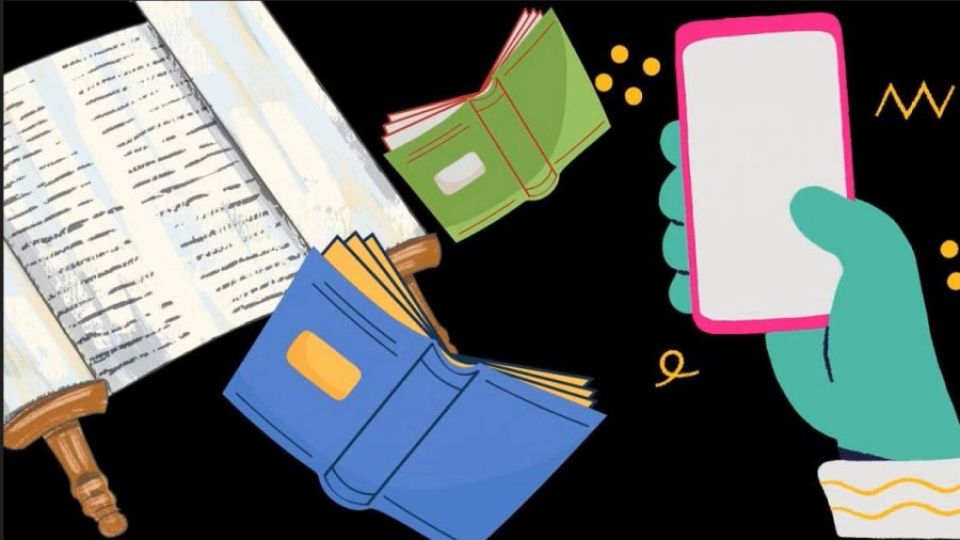February 24, 2023
DHAKA – Somewhere in medieval Europe, a despondent monk is staring at a bound book on the table. The door opens and a helpdesk person appears. What is our monk’s problem? Well, the book is a disruptive technology replacing scrolls and, utterly confused, the monk has no idea how to open and read it. The support person opens it at the first page and explains how the reader can read it and turn over the next page and so on till the end. Our monk manages to learn the trick and is saved from being left out.
This, of course, is an imaginary story from the time when paper-made books came out as new technology to disrupt the conventional ways of reading, writing, and transferring knowledge. Before paper, monks had to depend on long scrolls, often made of sheepskin. As paper and printing became commonplace, the literacy rate shot up, vastly improving the knowledge transfer process.
These days, we have digital technologies that are disrupting everything we have long taken for granted. That includes how we learn, live, collaborate, think, work, and socialise. The American Library Association (ALA) defines it as “the ability to use information and communication technologies to find, evaluate, create, and communicate information, requiring both cognitive and technical skills.”
First coined by technology writer Paul Gilster in 1997, the term “digital literacy” follows on from visual literacy (using non-textual symbols and images to convey messages, such as hieroglyph); technological literacy (the ability to use a particular technology or technologies); computer literacy (using personal computers, which developed in the 1980s); and information literacy (finding, evaluating, using and sharing information). With the advent of the Fourth Industrial Revolution (4IR), and the increased availability of various disruptive digital technologies – especially autonomous algorithms, machine learning, robotics, and artificial intelligence – digital literacy has become a subject of mainstream discussions, and shifted towards a plurality of literacies that includes elements of cognitive and practical skills. And it has huge implications on education, work, and society.
Today’s workplace needs are evolving at such a fast pace that no education system can keep up with it. Digital skills enable us to perform today’s jobs, but digital literacy is required to satisfy the ever-changing demands of the future. The relationship between the two is like that between data and information. We may be data-rich, but information-poor – unless we know how to skim useful information from data. That does not mean that we must master all the software out there, but that we should be confident and keen to try new technologies and move ahead. At the same time, we should have the flexibility and adaptability to learn new processes. There is a global shortage of digitally literate workforce, and more work roles need digital skills than ever before.
A RAND Corporation study shows that employers are actively seeking workers with digital skills to survive in an increasingly digitalised environment. The traditional ways of education are unable to keep pace with the increasing demands for digital literacy, emphasising the need for a learning mindset that is ready to embrace a life-long journey of continually improving our skills.
Only with such a mindset can we cater to the present and future industry needs. But that requires a strong foundation in digital literacy. The time when a given skill set could take us to our retirement is long gone. Now, we need to continually reinvent ourselves to remain relevant in the industry – a mindset that must take root during one’s student life.
There are a few key traits that we should acquire as students to become digital citizens. We should be empowered learners with the drive to remain updated, be curious, and continuously adapt. We should know how to promote open and responsible collaboration in the digital world for effective knowledge transfer. We must acquire the skill to “cut through” a sea of big data and noise to find out the pertinent information. We should be problem solvers to constantly explore the potential for workflow and process improvements exploring alternative ways with new technologies. We must think outside the box and not be bound by traditional problem-solving methods. We should strive to become knowledge constructors to synthesise data from different sources and transform information into usable formats.
At a wider level, digital literacy can foster more open, inclusive, and secure societies. When we interact with digital infrastructure, digital literacy makes us aware of the privacy and data risks as well as cybersecurity challenges. Besides, with better cognitive and critical thinking skills, we can analyse news based on source, bias, and agenda. We will know when technology is trying to manipulate our opinion. We can safeguard ourselves from misinformation and disinformation. We won’t focus on the technology, but on the whole way of working and living in the digital landscape.
Bangladesh has adopted a vision for building a smart nation, because it doesn’t want to be left behind but play a leading role in the digital world. For that to happen, a strong foundation in digital literacy is essential, which comes from a commensurate education system. Without digital literacy, we risk being left behind like the medieval monk, and the vision of building a smart Bangladesh might remain a pipe dream.


